Boxing In The Blood
I guess you could say it’s in the blood. Boxing. The fight game. The crazy racket they call pugilism. Because the fact is both of my grandfathers were boxers, and both were Canadian champions. How many can say that? My mother’s father was a Commonwealth bantamweight champ and my paternal grandfather was Canadian heavyweight champion. Both boxed in the military. In fact, my mom’s dad was set to compete at the Olympics in 1952 before a little thing called The Korean War got in the way.
I started boxing as a kid in Fredericton and had a decent amateur career, though I never really had a proper coach. But I had the guts and the power to win fights and I put together a decent record. But at the time I wasn’t thinking at all about a serious career; my ambition wasn’t for boxing to be my life.

Things took a turn when I went to Arizona to work as a youth counselor at a retreat for young offenders. I was 20-years-old and helping people and working with troubled youth was what I wanted to do. But a colleague there happened to be a boxer so I started training again and decided I owed it to myself to have just one pro fight. Just something to scratch off the “bucket list,” something to tell my kids about. One real professional boxing match. So I did it. I was paid $400 to take on a former national amateur champion and guess what: I knocked him out in the fourth round. Next thing I know they’re asking if I want to fight a month later in Las Vegas. Well, why the hell not?
Still, I wasn’t that serious about it, wasn’t looking to have a real boxing career. But I kept getting fights and kept winning and my sixth match was on the undercard of a major show in Las Vegas, Sugar Shane Mosley vs Shannon Taylor. So after I won again my manager decided it made sense for me to get some serious and legit training, something I’d never really had up to that point. So I packed everything I owned into my Honda Civic and drove out to Los Angeles to see Freddie Roach at the Wild Card Gym.
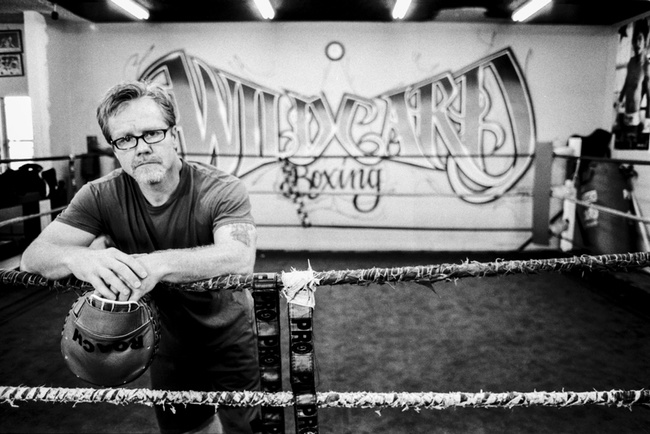
When you show up at the Wild Card, Freddie makes you do an audition before he agrees to train you. So I got in the ring there with a Mexican junior middleweight, Patrick Domingez. He was all wrong for me. Tall, slick and he was boxing my ass off, making me look stupid. We’re in the second round and I could see out of the corner of my eye that Freddie was losing interest. Did I come out to L.A. for nothing? Was this gonna be the end of my career? Before it even got started? Then I broke through in the third round, landed a good left hook and dropped the guy hard. And after Freddie told me, “You have little skill but you got good power and there’s something there for sure.” So he took me on and I was based in L.A. for about five years.
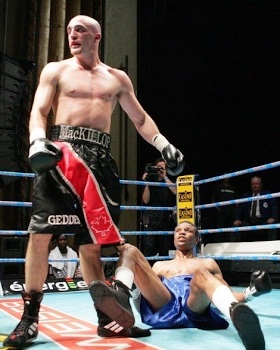
That process repeated itself more than once at the Wild Card. I even remember Freddie working the mitts with me one time and pausing to say, “Jesus, Ian, your technique is horrible.” And every so often I could tell Freddie’s interest in me was waning, but then I’d knock someone down in the gym, or even knock a guy out, and that would get his attention. I learned a lot from Freddie. And I remember going to watch fights at his tiny little bachelor apartment at the bottom of the Hollywood sign. He lived in this little apartment and drove a beat-up old pick-up truck. People teased him but he didn’t care. He had plenty of money but just had no pretensions at all. He and I had our issues along the way, good times and bad times, but Freddie taught me a lot, no question.
True story, I was at the Wild Card when Manny Pacquiao first came there. Nobody knew who he was. He was just a little Filipino guy and no one noticed him. He worked by himself and didn’t speak to anyone. The stories about how Freddie noticed him right away are just that, stories. The truth is he was there for a good couple of months and no one really noticed him until a fight fell through and someone called the gym looking for a replacement opponent. And Freddie was like, “Yeah, I got this guy, he’s Chinese or Japanese. He might be good for it.”

So Pacquiao took the fight and Freddie didn’t know who he was. That was the day Freddie first held the mitts for him and I was there. I remember it exactly and Freddie was like, “Wow, this kid is special.” But Manny had been in the gym for months before that. He didn’t speak a word of English then. He was a super guy, very hard worker. So I was lucky enough to be training at Wild Card the same time as Pacquiao and James Toney.
I’ll always remember the time I sparred at the Wild Card with Alfred Ankamah. They called him “The Torpedo.” He should have been a world champion but he was horribly mismanaged. One of the hardest punchers I ever encountered. I was maybe 6-0, an up-and-comer, and he was like 20-7, on the way down and we locked up and by the fifth round I was hanging on for dear life. Freddie had been on my back for a while, bugging me, telling me if I was serious that I needed new gear, better helmet and gloves, but I’d told him I didn’t have the money for new gear. Well, I paid for it that day. In round six Ankamah beat the crap out of me, ruptured my ear drum, and Freddie told me, “You’re not as good as you thought you were.”
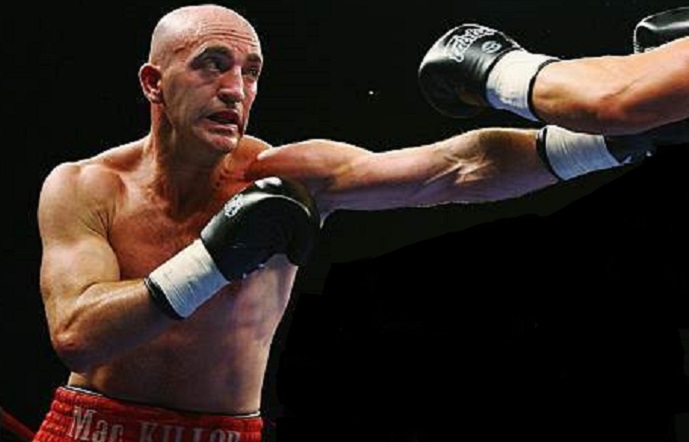
A few days later, I come to the gym and there’s a set of brand new gear waiting for me. New helmet, gloves, everything. “This is a gift from me to you,” said Freddie. “You’re a real fighter so you need the proper equipment. This is for you.” And of course that meant the world to me. After the Kermit Cintron fight, I had the money and I tried to pay Freddie back but he wouldn’t take it. Like I say, things weren’t always great between Freddie and me, but he taught me a lot.
I was 10-0 when I fought on the undercard of Zab Judah vs Kostya Tszyu at the MGM Grand against a kid named Ted Limoz who was 6-1. I got decked in the third round and referee Kenny Bayless stopped the fight and I went ballistic. I was furious. No way I should have lost that fight. I had dropped Limoz twice in the first round and I couldn’t believe it. Before I left the ring I went over and called Bayless every name in the book. But by the time I got back to the hotel room both my eyes were swollen shut and I was pissing blood and I realized I had actually been beaten up pretty bad. So, looking back, I regret calling Kenny every name in the book and I know he made the right call. I was happy when I got a chance to apologize to him at Canastota in 2016.
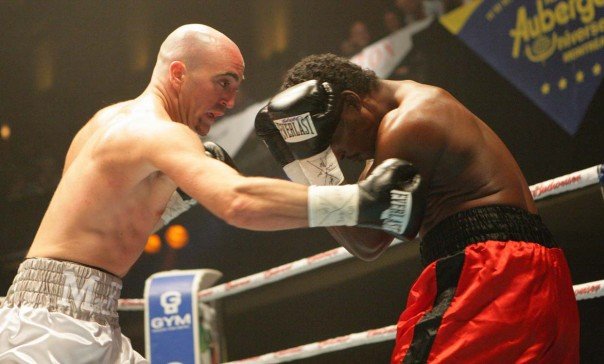
So that was a major setback but I kept going and put some more wins together. Meanwhile, L.A. is an expensive place to live so I was doing a lot of sparring to make ends meet. I was doing all right. I did training camps with Shane Mosley, Vernon Forrest, and Kermit Cintron and they all paid extremely well. And I became good friends with Vernon. He was a great guy and I learned a ton from him. But Freddie pulled me aside one day and told me I was sparring too much, told me it was going to take a toll. See, I was going from camp to camp to camp, without any break between, sparring almost every day. But I was having too much fun, hanging out with world champion fighters and meeting lots of pretty young girls. But Freddie told me: “It’s going to shorten your career.”
I was 14-1 and I got a big chance in 2002 to fight Kermit Cintron on a Showtime card and I lost badly. At that point Freddie was getting busy with other fighters so I knew I had to redeem myself. I dropped a close decision to Armando Verlardez but then beat Ramon Olivas. He was undefeated and I fought him in his hometown and stopped him in the seventh round. Then I beat Roberto Garcia on NBC, won a decision, so two big wins and I was breaking into the top ten rankings.
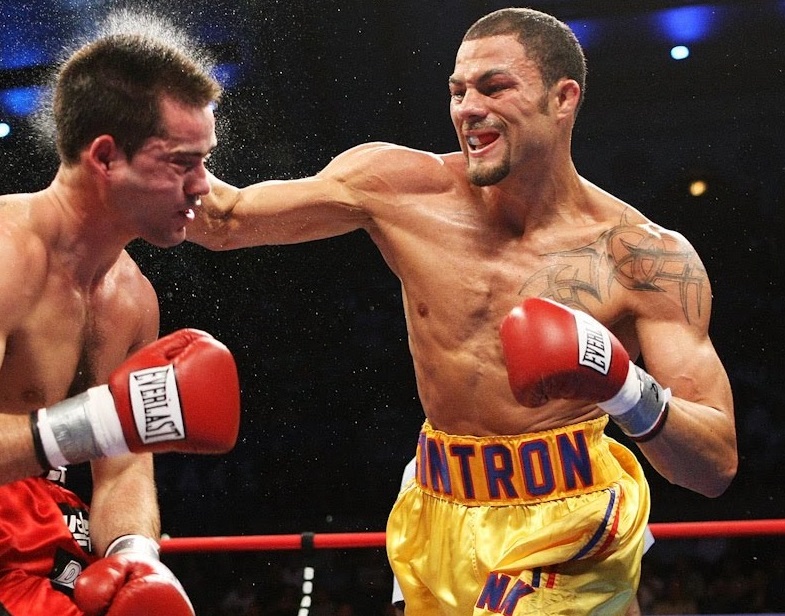
Then I got an offer in 2004 to fight Manuel Gomez, who had been a strong contender at one point, but now was on the edge, ranked below me. I felt great, confident, and the money was good, plus it was a main event. I was doing great in sparring, competing on even terms with Vernon and Cintron, so I wanted that fight. But Freddie thought otherwise. He told me not to take it, but I didn’t listen.
The thing was, by this time weight was becoming a big problem. I was walking around now at about 170, but the fight was at welterweight. I had to kill myself to make the weight and when the bell rang I had nothing. It was a terrible feeling. I was just too weak and dehydrated and Gomez beat the crap out of me, stopped me in the third.
So that was the turning point because my promoter dropped me, my manager and trainer dropped me, and to be honest I was feeling pretty fed up myself, so I went back to Canada. Thankfully my manager had done a decent job for me and I had a fair bit of money saved up. I went home and eventually I got in contact with Howard Grant and I was back in the ring before the end of the year and the rest of my career was based out of Montreal.
But the truth was, I was finished. Looking back, I realize that now. I got paid well because I had a decent record and a good reputation but, to be completely honest, I was done. I recently watched a video of myself fighting Sebastien Demers, our second fight in 2006, and I show all the signs of a shot fighter; my legs were gone, my timing was bad. I know, as a trainer, if one of my boxers looked like that I would stop the fight and I would recommend they retire. I couldn’t see it myself, but I wish someone else had.
Rest of my career was kind of crazy, but in fact I had a big win in 2006, before the Demers fight. I got a chance to take on Shannon Taylor, in Australia, and for the IBO Inter-Continental title. The money was good and I was excited about it, but when I told Howard and Otis, they weren’t too enthusiastic. Howard told me, “I’m sorry, Ian, but I’m not going with you to Australia. You can’t beat Shannon Taylor. I think you should retire.”
So I ended up talking to Bob Miller and he said, “I’ll go with you. I’ve always wanted to see Australia. And I think you can win this fight.” So we went and had a great trip, stayed in a beautiful hotel. And Bob Miller is such a stress-free guy. I never felt so relaxed before a major fight. And I went in and beat Shannon Taylor, stopped him in round six and won a major title.
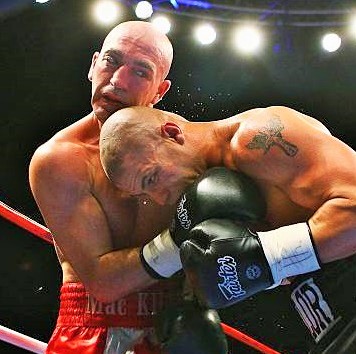
So I had a few more fights in Montreal after that, including another one with Sebastien Demers who was an undefeated prospect at that time. The third fight with him in 2007 only happened because his opponent, Jason Naugler, couldn’t make weight. So Yvon Michel calls me, just 12 hours before the fight and says, “Ian, I need a favour.” Naturally the money was good, so I took the fight on 12 hours notice and was stopped in the third round and I figured that was the end.
Not long after that I was in a major car accident. I was actually coming back from doing an MRI when I got hit and was injured and I was told I probably wouldn’t fight again. So I stayed out of the gym for a while, got a steady day job, decided that was it. Then, out of the blue, I get a call. A chance to fight Evans Ashira. Good boxer. He’d gone the distance with Joe Calzaghe and Howard Eastman. Great money. And the fight is in Denmark with a title on the line. The only catch? The fight was in six days.
But I just couldn’t turn it down. Call me crazy, but, despite everything, I missed boxing. I missed the excitement. And I love to travel. And when was I going to get this kind of chance again? So I took the fight. And in fact, I had him hurt in the second round, but I couldn’t finish him. Then he caught me with a beautiful right hand and it was over in round three.

So I figured, okay, that’s it. I’m done. But then I get another call. This time to fight Daniel Geale in Australia. Geale wasn’t much of a puncher and the money was great and it’s a chance to travel again. But the thing was, not that long before I had sustained a broken nose and in the fight Geale nailed me and just demolished it. The pain was unbelievable so I did something I’d never done before, the only time in my career, I took a knee.
So, again, I was sure I would never lace ’em up again, but a year later I was promoting a fight card in New Brunswick and one of the boxers didn’t show up. So, as they say, the show must go on, and I stepped through the ropes one more time but I lost the decision. And I knew, this time for certain, that was it. I had a lot of fun, a lot of adventures, and some good paydays, but it was time to move on. I still got some offers after that, but I knew I had to start looking out for my health. I was starting to get some issues with my balance and my speech and soon after I was diagnosed with mild to moderate motor skill impairment, so that was really and truly the end of the ride.
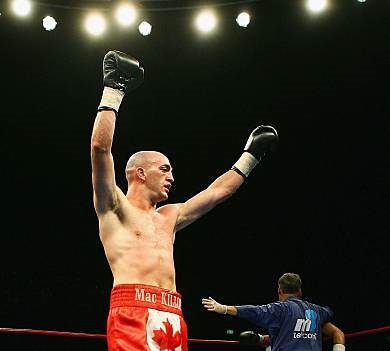
But when I look back, I don’t really have any regrets. I wish I’d been able to stay in the gym more. But I was a single father for the last few years of my career and it was tricky. I had a steady job plus I was raising a daughter, so it was difficult to stay focused and train properly.
I should have listened to Freddie about sparring too much. For example, one of my last camps was with Vernon Forest and he had lost two of his sparring partners so it was up to me to give him the work. I was doing like 40 rounds a week with him. Now, he was paying me well, but he also made sure he was getting his money’s worth. And I can tell you, Vernon Forrest hit me harder than anyone. His straight right was dynamite. I was competing well, holding my own, but he could really punch. I remember one time we were mixing it up and next thing I know Vernon’s trainer is standing over me asking if I’m okay. I was like, “Yeah, why?” And he said, “Vernon hit you with a right hand and put you down.” And I had no memory of it.
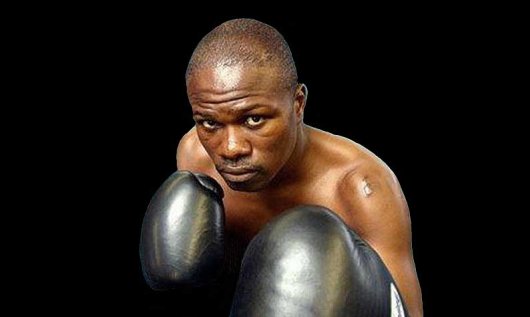
I was Vernon’s main sparring partner for a long time. With him alone I must have sparred four or five hundred rounds. But I did a lot of rounds with Kermit Cintron too, and with different guys at the Wild Card. I remember once I sparred with James Toney there. I loved him. He was always my favorite fighter. Always loud and obnoxious. But I never spoke to him and I remember I had lost to Kermit Cintron and I was embarrassed to come back to the gym, ashamed and embarrassed.
So I walk in and Toney starts yelling at me, “Ian MacKillop! Ian MacKillop!” I wasn’t aware he even knew who I was. But he came over, put his arm around me and gave me a pep talk that meant a lot to me. But Toney was an amazing fighter, an amazing talent. Just a natural. He’d come into the gym in jeans and a t-shirt, no warm up, and get in the ring and spar. And he’d do like fifteen rounds! So I sparred him once and at the end he starts yelling at one of his regular sparring partners and is like, “Gimme your money! Cause I’m gonna give it to this little white guy! He gave me way better work than you!”
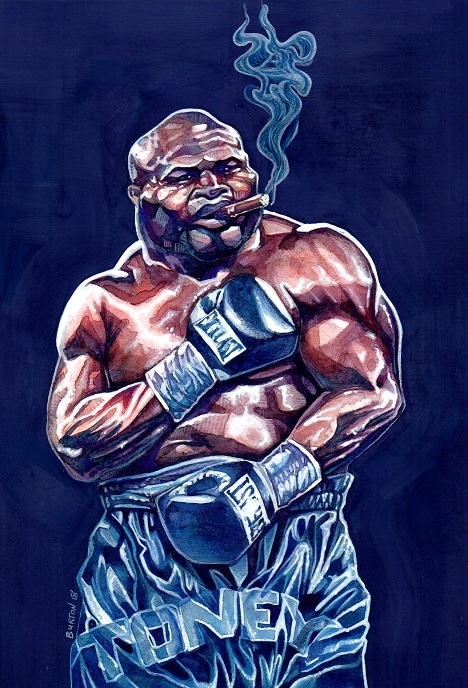
After that last fight in New Brunswick I felt a bit lost. I had a good day job so I was doing okay but I was looking for the next chapter, so to speak. So then I get a call from a guy I knew who was managing an MMA fighter and he wanted me to give him some one-on-one boxing lessons. He paid me well and so I started training some other guys and one thing led to another. I did some work with Hennessy and actually ended up working a bit with Tyson Fury when he fought in Quebec City in 2010. That’s when I met Emanuel Steward who told me back then that Fury would someday be heavyweight champion of the world. He said, “I guarantee it.” Told me that in 2010.
So then a friend of mine in Montreal approached me because his son was starting to box and he wondered if I could help him out with a young guy named Shakeel Phinn. So I trained him as an amateur and then he turned pro in 2015 and since then you could say training has become my passion. I’ve got my own gym now, Donnybrook, and I’m building up a small stable of fighters, including Jessica Camara who upset Heather Hardy and is fighting for a world title on August 20th. Different pros have visited and trained at the gym including Francy Ntetu, Christian M’Billi, Steven Butler, even Tyson Fury.
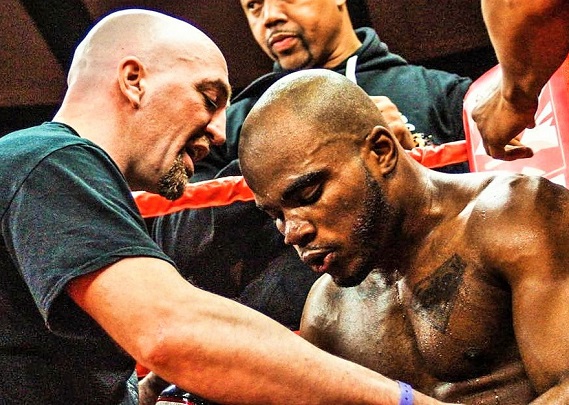
I have to say, my time in the Wild Card gym really shaped the way I see this sport. And Freddie and I didn’t always see eye to eye, but like me, he has seen this sport from all angles, from both sides, the best and the worst, the highs and the lows. He had been the A-side and stayed in beautiful hotels and made some very good money, and then he was the B-side and took fights on short notice and for small paychecks. And it was the same for me. But Freddie’s gym was super popular and he had major fighters and trainers and celebrities coming there all the time. And I remember Freddie told me once, “I try to learn something from every trainer who comes to this gym.”
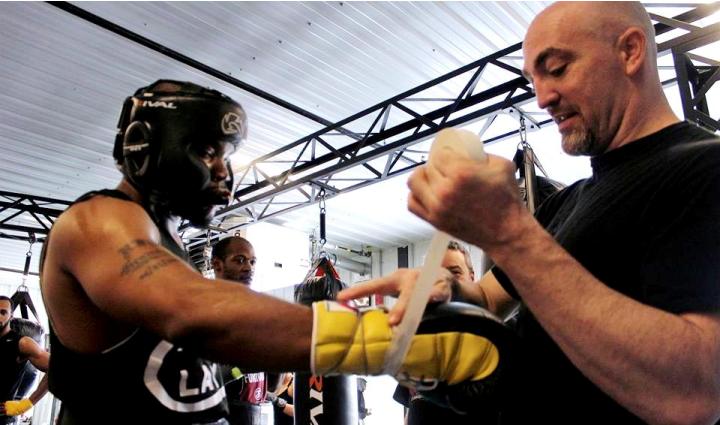
So it’s the same with me. People don’t realize how complex this sport is. You never stop seeing new things, learning new things. I had my first fight when I was 11-years-old, and over thirty years later, even now, I’m still learning new things. I’ve worked with some great trainers: Eric Brown, Howard Grant, Freddie, Emanuel Steward, Marc Ramsay. And I want to carry on the tradition, bring everything I know and more to my fighters and help them be successful. That’s the next chapter for me.
But I have to say, I could never have predicted that this is where boxing would take me. When I started in New Brunswick or when I went to Arizona, I never thought the fight game would be my life. Never in my wildest dreams did I think I would have forty pro fights, that boxing would take me all over the world, that I would end up owning my own gym and being a trainer. Being around fighters and everything that comes with it: managing, training, working corners, promoting fight shows in Nova Scotia and New Brunswick, this is my life. Like I say, it’s in the blood. — Michael Carbert

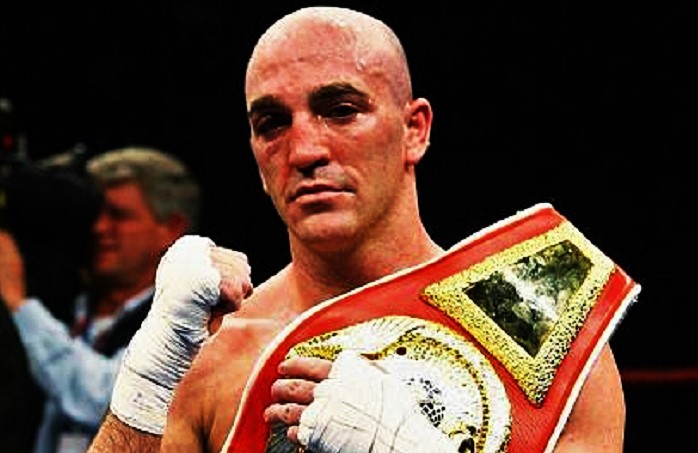

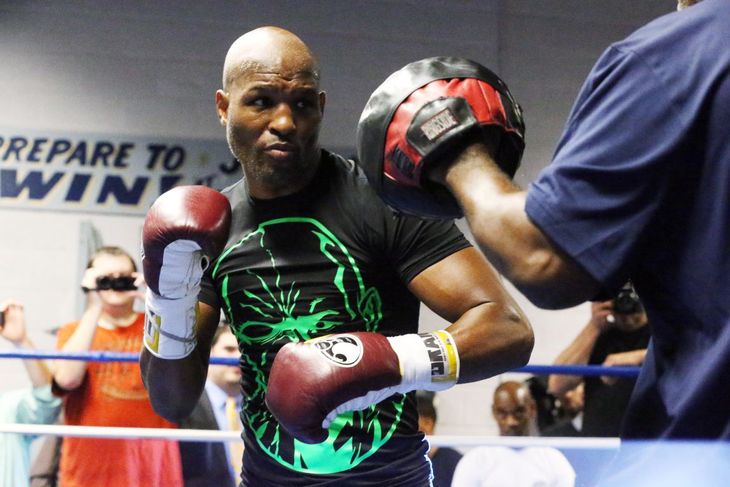
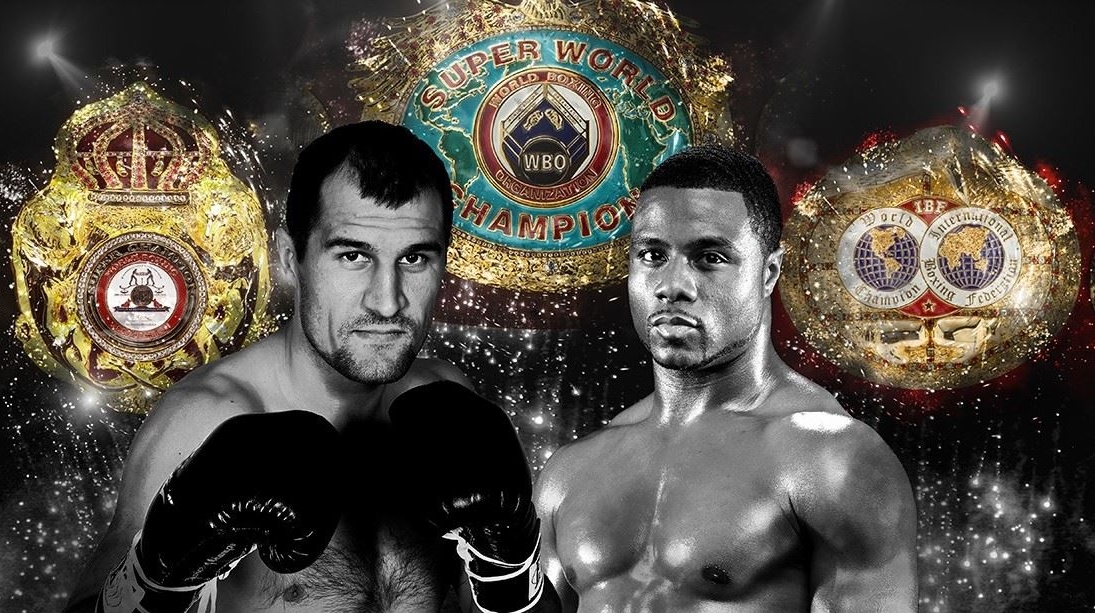
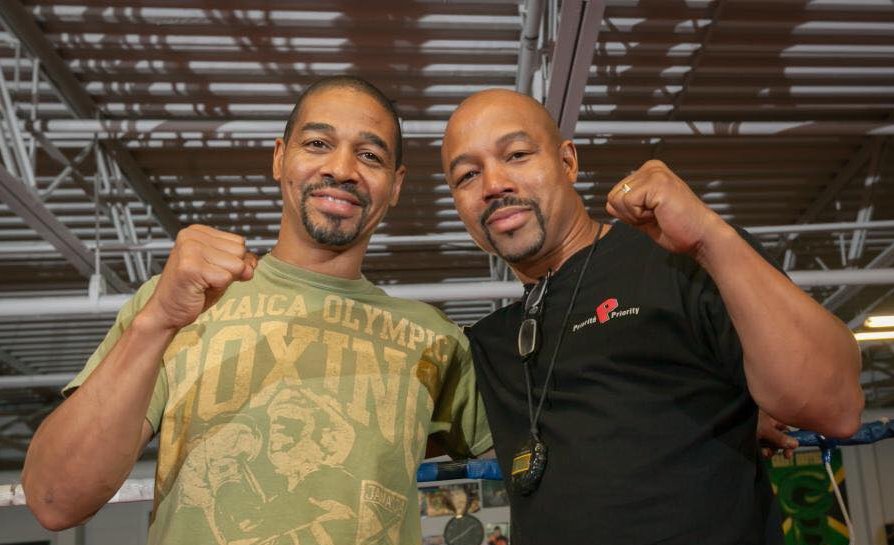
I saw this kid when he first started. In fact, he fought some of my fighters. Always a gentleman. Had a great career. Lots of great fights. Now a really good trainer. Best of luck, Ian! Joey C. Borden.
Fantastic read Ian I had no idea you fought and sparred with such great fighters. You are a Canadian boxing icon. You’re also a great trainer and promoter and super nice guy.
That was a great piece.
I interviewed Ian for Below the Belt Boxing Magazine after he came back from Arizona. One of the nicest gentlemen in the sport. His fight with Bryon Mackie at the Royal York Hotel in Toronto was one of the best action fights I have seen.
Sensational read. One of the most compelling profiles I’ve seen in a long, long time.
Congrats, Mike.
I was Ian’s manager in Arizona! He’s a good guy!
I know Ian personally and I could state without any hesitation, a world class fighter , trainer, father and friend